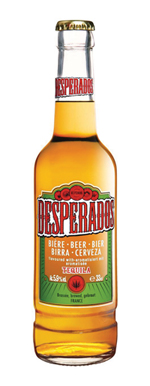 The essential purpose of introducing the VAT is to have a tax system that is fairer, more effective, efficient and easier to administer. VAT has fulfilled these objectives in more than 120 countries worldwide, including: St. Vincent & The Grenedines, Dominica, Barbados, Grenada and St. Kitts & Nevis.
The essential purpose of introducing the VAT is to have a tax system that is fairer, more effective, efficient and easier to administer. VAT has fulfilled these objectives in more than 120 countries worldwide, including: St. Vincent & The Grenedines, Dominica, Barbados, Grenada and St. Kitts & Nevis.
What is Value Added Tax (VAT)?
VAT is the acronym for Value Added Tax, which is levied on all forms of consumer spending on taxable goods and services. From the perspective of the buyer, it is a tax on the purchase price.
VAT is computed on the value of imports and the Value Added or mark-up, that one business charges another, or the final consumer, on the supply of goods or services.
VAT is not an additional tax but it will replace the following taxes:
- Consumption Tax
- Environmental Protection Levy
- Motor Vehicle Rental Fee
- Mobile Cellular Telephone Tax
- Hotel Accommodation Tax
What is the rate at which VAT is charged?
There are three (3) rates of VAT, depending on the goods or services the business provides. The rates are:
- standard – fifteen percent (15%)
- reduced – eight percent (8%) on goods and services provided by hotels (until April 2013)
- zero – zero percent (0%)
Some benefits of VAT
- VAT is a more equitable and efficient way of collecting revenue.
- VAT is a transparent tax. You know how much VAT you pay, and when you are paying it.
- VAT is paid by all consumers.
- VAT will not be charged on health care, rent on residential housing, water and sewerage services supplied by the Water & Sewerage Company (WASCO), public postal services, public transport, educational services and other basic goods and services.
VAT is more equitable, i.e. it lowers the rate of tax and broadens the base. It allows for a wider cross-section of people to pay the tax. The VAT system allows for, not only goods but services to be taxed.
VAT at a glance
VAT is applicable at the point of import as well as on locally produced goods
VAT can only be collected by registered persons (VAT taxpayers) who must have their VAT Certificates of Registration prominently displayed in their places of business.
VAT is included in the final price to the consumer, except on zero-rated or exempt goods.
How will VAT affect you?
- Temporary increase in prices of old stock
- Price of some goods will increase, decrease or remain the same
- Prices of services, which are not exempt may increase
What are Zero Rated and Exempt Supplies?
Zero Rated supplies are those goods and services on which VAT is charged at a rate of zero percent (0%).
Water, electricity, fuel, fresh eggs and uncooked pasta are some of the goods/services that will be zero rated.
Exempt Supplies are those goods and services that are not directly subjected to VAT.
As disclosed by the Prime Minister and Minister of Finance, Hon. Dr. Kenny Anthony, a slew of basic domestic and food items will be exempted from VAT effective October 1, 2012.
A number basic food items are exempted from VAT and the list includes:
- uncooked rice
- flour
- cane sugar
- fresh, chilled or frozen unprocessed/raw chicken and fish
- milk (evaporated and powdered)
- butter
- unprocessed vegetables
- fruits and ground provisions
- fresh potatoes
- unsweetened biscuits
- table salt
- uncooked peas and beans
House rent, educational services, financial services, insurance services, medical services, religious services, the transportation system and postal services by the state will also be exempt from VAT.
VAT cannot be charged on the sale of zero rated or exempt goods and services.
The full list of zero rated and exempt goods and services are available in the VAT Act No.7 of 2012 . The VAT Act is available for reading on the VAT website, www.vat.gov.lc.
Who can charge and collect VAT?
VAT can only be collected by registered persons (VAT taxpayers) who will have their VAT Certificates of Registration prominently displayed in their places of business.
If you are in doubt as to whether you should be paying VAT, you should verify that the place of business is registered for VAT by looking for the VAT Certificate at the place of business. If this cannot be proven, you should refrain from paying the VAT and report the incident to the VAT Section of the Inland Revenue Department.
NB: You must receive a sales receipt, which would display the price of the goods and the total VAT paid.
Will the VAT be added at check-out or is it included in the price on the shelf?
The VAT Act requires that prices quoted or advertised must always be VAT-inclusive. This means that the price you see on the shelf or on the product/service is the price you will be required to pay.
As a final consumer you need to be vigilant and know your rights, know which goods and services that are zero-rated or exempt.
For more information, the VAT Office can be contacted at telephone number 468-1420 or 468-2800 or email vatcoordinator@vat.gov.lc or vatinfo@vat.gov.lc.
VAT
Simplifying the collection of Tax


